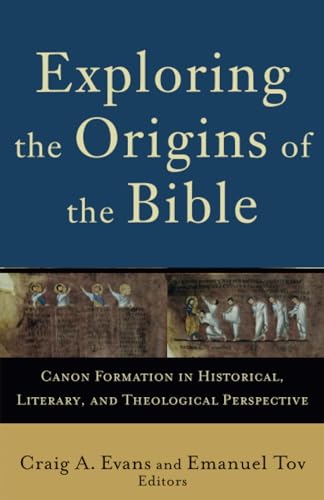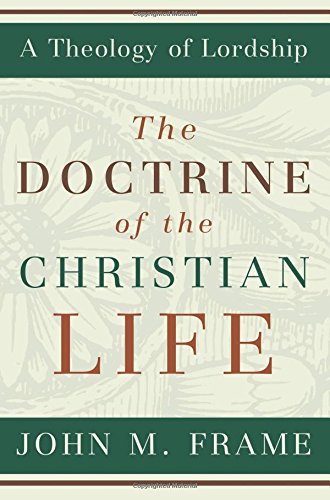We Become What We Worship: A Biblical Theology of Idolatry
Written by Gregory K. Beale Reviewed By Matthieu RichelleFour years after The Temple and the Church’s Mission (IVP, 2004), Beale resumes his work in biblical theology and turns to the subject of idolatry. More precisely, this work studies a neglected aspect of worship: “what people revere, they resemble, either for ruin or for restoration” (p. 16). The author first shows that this idea underlies Isa 6, and then tries to trace this theme in all the biblical passages that are intertextually related to it.
In the introduction Beale outlines his methodology and his conception of doing biblical theology viaintertextuality. In particular, he considers that a text alluding to another one can develop an idea unforeseen by the former author but contained in his “willed type” in the sense that if one had asked him, he would have acknowledged that the “new” feature was implicitly held in his words and conformed to his intention, albeit not immediately present in his conscious thoughts when writing. Chapter 2 is devoted to demonstrating that Isa 6:9–10 (the “foundational example”), where God commands his prophet to render the ears of the Israelites dull and their eyes dim, describes a judgment on idolatry, although this sin is not explicitly mentioned. Indeed, other biblical occurrences of the “organ-malfunction language” (to have ears but not to hear, etc.) are related to idol worship. The punishment consists of making people similar to the inanimate images they revere: deaf and blind. The following sections examine the data in the rest of the OT (chaps. 3–4), Judaism (chap. 5), the Gospels (chap. 6), Acts (chap. 7), Paul’s epistles (chap. 8), and Revelation (chap. 9). Two final chapters are respectively devoted to the “reversal from reflecting the image of idols to reflecting God’s image” and to applications for the present day.
In many respects, this book proves to be extremely interesting.
- The author has chosen to tackle an aspect that is little studied and yet potentially rich in applications. The principle “we become like what we worship” is a fundamental one in spiritual life, and has a positive side: being increasingly transformed into the image of the Lord (2 Cor 3:18). Beale’s range of references encompasses excellent exegetical essays as well as books by authors such as John Piper and David F. Wells. It is a model for exegetes concerned with writing books for the Church.
- This work deserves admiration: the author, a well known NT scholar, has furnished a very detailed study in OT exegesis (many technical aspects are addressed, though briefly, especially in the footnotes).
- The study is very clearly presented. Each intertextual link is outlined with detailed explanations and tables.
Nonetheless, two important questions arise. Are the alleged intertextual links rigorously proved? If so, are the consequences of these links for the interpretation correctly drawn, or are they exaggerated? With regard to the first question, Beale appears relatively cautious in establishing links. As for the second, a case-by-case examination would be necessary. For Isa 6, the demonstration is fascinating; several others seem debatable, for three reasons.
- There is evidently a risk of eisegesis. For example, Beale sometimes imports patterns from the context of a verse into another text that quotes it, and sometimes the relevance of these patterns is questionable. It is certainly possible that an author implicitly refers to the broad context of the verse he quotes, so that exploring this track is relevant and even necessary, but caution is needed. For example, Mark 7:6–7 is a quotation of Isa 29:13. Neither Mark 7 nor Isa 29 explicitly addresses idolatry. But since Isa 29:9–10 alludes to Isa 6:9–10, where a judgment is given against idolatry (but again, only implicitly), Beale considers that all of these texts are concerned with idolatry (pp. 166–68). (He also argues that Isa 30:1–5, where he sees an allusion to idolatry, explains the criticisms of Isa 29; but these are different oracles, and their relationship is far from obvious.) Admittedly, the conclusion for Mark 7 seems theologically correct (human traditions were idols for Pharisees), but while some will find this demonstration brilliant, others will take it for eisegesis through “intertextual contagion.”
- From time to time, deductions seem to be made too quickly. It is important that Beale tries to point out all the arguments that support his thesis in the different texts he studies. It turns out, however, that his interpretation often seems at best possible and far from absolutely proved. This is the case for the verses speaking about idolaters having exchanged their glory for worthless things (e.g., Ps 106:20) and where Beale detects an allusion to the “glorious reflection” of God. Likewise, is it certain that the mark stamped on worshipers in Revelation, or the gift of a new name, necessarily implies, in itself, a likeness to the Beast or to the Lord (pp. 256)?
- Several theological suggestions can surprise. For example, not everybody thinks that Adam was commissioned to prevent the snake from entering the Garden (p. 132).
Overall, despite some shortcomings, many fascinating questions arise when reading the rationales stemming from intertextual links in order to shed light on the interpretation. The main thesis is well established, and even when one is not convinced, the discussions are stimulating. Preachers, students, and teachers will find in this exciting book not only original ideas, but also food for thought about the relevance of intertextuality for biblical theology.
Matthieu Richelle
Matthieu Richelle
Faculté Libre de Théologie Evangélique
Vaux-sur-Seine, France
Other Articles in this Issue
We begin with a question of translation. Many translations place a period after the word “conviction” in 1 Thess 1:5: “in power and in the Holy Spirit and with full conviction...
The Inexhaustible Fountain of All Good Things: Union with Christ in Calvin on Ephesians
by Lee GatissJuly 10, 2009 was the 500th birthday of the acclaimed French Reformer John Calvin...
The name of Martin Luther is perpetually linked to the doctrine of justification by faith alone...
Of the many questions currently surrounding the discussion about justification, the relationship between justification and spiritual fruit merits attention...
Every year a few students ask me my thoughts about whether they should pursue doctoral studies and I respond with what has come to be known as ‘The Speech...







